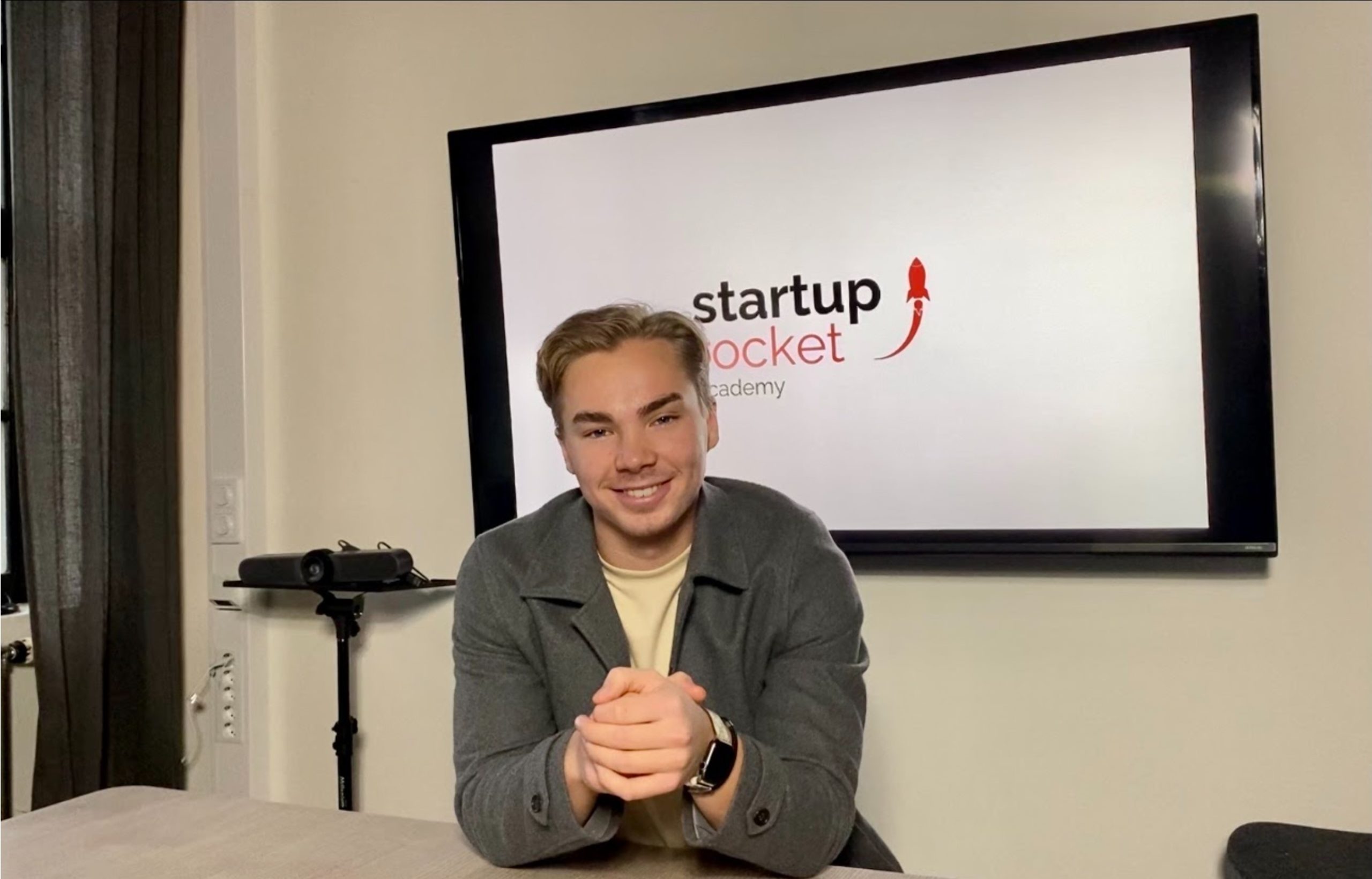“Many people might think that it’s hard to get successful entrepreneurs to help them, but what I’ve found out during my journey is that it’s actually not.” Hannes Rydell said. Hearing this was not only thrilling but calming. Most people spend days or even months pitching their business ideas to investors, but everything goes wrong. Additionally, we all know Shark Tank and how many investors are turned down yet there are others whose ideas are admired and even end up with two or more sharks investing. Why then was Hannes Rydell saying that it is easy to get an investor?
Hannes Rydell is a young entrepreneur who has beaten many ‘odds.’ Firstly, he is a 21-year-old startup founder. Yet, according to studies done by Duke University, the average entrepreneur is actually 40 years old when launching his or her first startup. The average leader of high-growth startups is 45 years old.
Mindset Is Key
Rydell, who was not from an entrepreneurial family, had no initial plans of venturing into any kind of business. However, by the time he was 16, he was loving entrepreneurship, and he wanted to test the waters. He started his journey, and he had ventured into different projects like social media marketing, web development, and running eCommerce stores.
At 19, Hannes Rydell founded a SaaS-company called DropInGolf Sweden AB, which helps golf courses to maximize tee time availability. “I’m currently running this company, and we have a little bit over 15 000 users,” he said.
Getting Investors
As aforementioned, Rydell said that getting investors for him was easy. And true to his words, he got multiple high-end investors in his first business, which gave him more experience and capital to run his company. “In short, almost all success has come from getting the right people to listen to me.” He said as he continued, “I believe that the skill of getting other people to buy into your ideas is the most valuable of all as an entrepreneur, and so far I’ve been pretty good at it.”
As a young entrepreneur, you usually don’t have a lot of credibility, money, or connections to show others. However, according to Hannes, “you do not need these resources yourself, you just need to find other people who have them and are willing to give you access to some of it.” This is only achievable through investors, mentors, or partnerships.
The Power of a Business Plan
This is where Startup Rocket Academy, also started by Hannes Rydell, comes in. Getting investors is only easy if you have the right knowledge and resources to do so. For Hannes, the first investor is the hardest one to get among all. But after the first is on board then the spiral keeps on going up. To get that investor, you need to have an appropriate business plan that will compel them to invest in your idea.
Startup Rocket Academy (SRA) consists of multiple products, with the most popular being the SRA Business Plan Template. It is the number one tool for starting a business as a young entrepreneur. In all businesses, many areas need to be addressed in order to succeed.
The SRA Business Template will help you address all areas without leaving any because they are all outlined for you. This makes it easy because of the premade modules that are customized to fit in any business type in every niche. With the inclusive SRA Business Plan Template, you are 75% done with the business plan even before starting it.
Hannes calls the SRA Business Plan Template the first step to launching a successful business. “When the students are ready for the next step, they can get access to Startup Rocket Academy, which is our main product. Here we’ll go through not just how to start your business but every step to scaling and managing it. We call it the complete A-Z plan of launching a business as a young entrepreneur.”
If students are not ready to take this step right away, they can also purchase only a part of the program called Startup Network Mastery.
This is a Contributor Post. Opinions expressed here are opinions of the Contributor. Influencive does not endorse or review brands mentioned; does not and cannot investigate relationships with brands, products, and people mentioned and is up to the Contributor to disclose. Contributors, amongst other accounts and articles may be professional fee-based.

